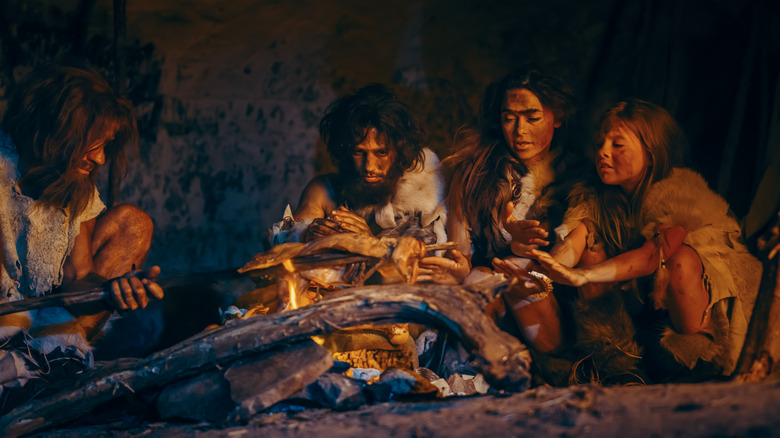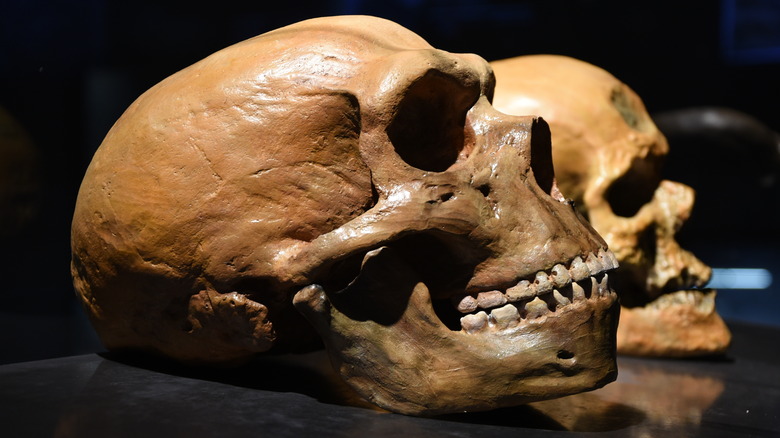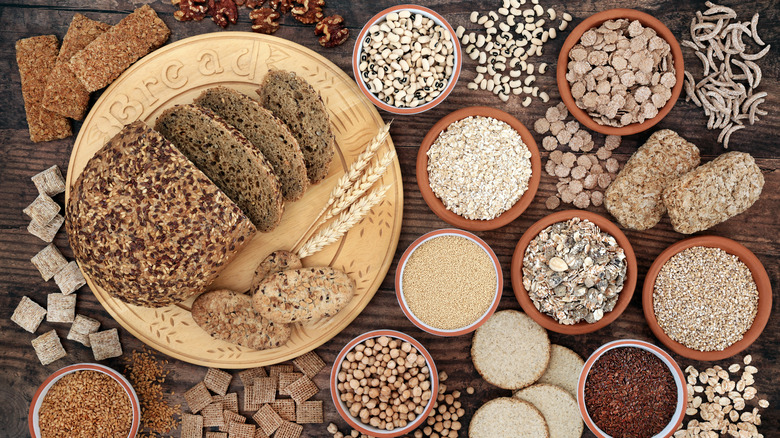What You Never Knew About Our Ancient Ancestors' Eating Habits
In an effort to curb the damage of diet-related health concerns like heart disease and diabetes, many dietitians are looking to our ancient roots for inspiration. The Paleolithic or paleo diet has become a particularly popular dining trend, aimed at reconnecting us with our more primitive selves. According to the Mayo Clinic, the paleo diet focuses on foods that early humans would have eaten in the Paleolithic era, prior to the advent of modern farming around 10,000 years ago.
The diet is rich in fruits, vegetables, nuts, seeds, and lean meat while avoiding processed foods, refined sugars, and starch. However, it's that last factor that has researchers talking, as recent studies have cast doubt on the role of carbs in our ancient ancestors' eating habits. The paleo diet is based on a concept known as the evolutionary discordance hypothesis, which suggests that our farming and manufacturing methods have outpaced our biological evolution and that we are genetically ill-equipped to digest refined and processed foods (via National Library of Medicine).
According to an article in History, the paleo diet was the brainchild of an American gastroenterologist named Walter Voegtlin, who believed that we could avoid many modern ailments by returning to the diet of our Paleolithic ancestors. Voegtlin posited that our bodies have not evolved to keep up with changes in agriculture and food manufacturing, but his logic has recently come under fire.
What the paleo diet misses
A 2021 report details the findings of a seven-year international study on the oral microbiomes of primates, per The Harvard Gazette. The term "oral microbiome" refers to the collection of natural bacteria and other microorganisms that inhabit your mouth. At the center of the study was an effort to sequence the oral microbiome of a 100,000-year-old Neanderthal, the oldest specimen ever examined. The results uncovered a surprising fact about starch.
The 100,000-year-old oral cavity showed the presence of bacteria that are specifically adept at breaking down starch, suggesting that our ancient ancestors had more carbohydrates in their diet than previously thought. An earlier study, co-authored by researchers at the University of Sydney, showed that humans have more starch-digesting enzymes in their saliva than other primates, further suggesting that our ancestors specifically evolved to have starchier diets (via The University of Sydney). The research team determined that a diet relatively high in starch was necessary for the advancement of human civilization.
Carbohydrates power the brain
The research team in Sydney determined that a diet relatively high in starch was necessary for the advancement of human civilization (via The University of Sydney). According to their findings, the human brain uses 25% of the body's total energy budget, which is quite impressive considering the brain only accounts for 2% of the body's mass, per Live Science. Even more significant is the fact that the brain uses up to 60% of the body's available glucose (via The University of Sydney). In order to advance beyond other species, humans needed plenty of fuel for their comparatively large and powerful minds, fuel that could only come, not from meat or vegetables, but from starches.
Don't take this as a free pass to eat all the doughy delights you desire though. The paleo diet is an oversimplified answer to issues in our modern diet, but there is some valuable wisdom within it, especially when it comes to avoiding processed foods and refined sugars, which have been linked to numerous health concerns, including obesity, strokes, and dementia, according to the National Library of Medicine. If you are looking to eat healthier, try sticking to the carbs that your ancient ancestors would have enjoyed, such as potatoes and nuts (via WebMD).


